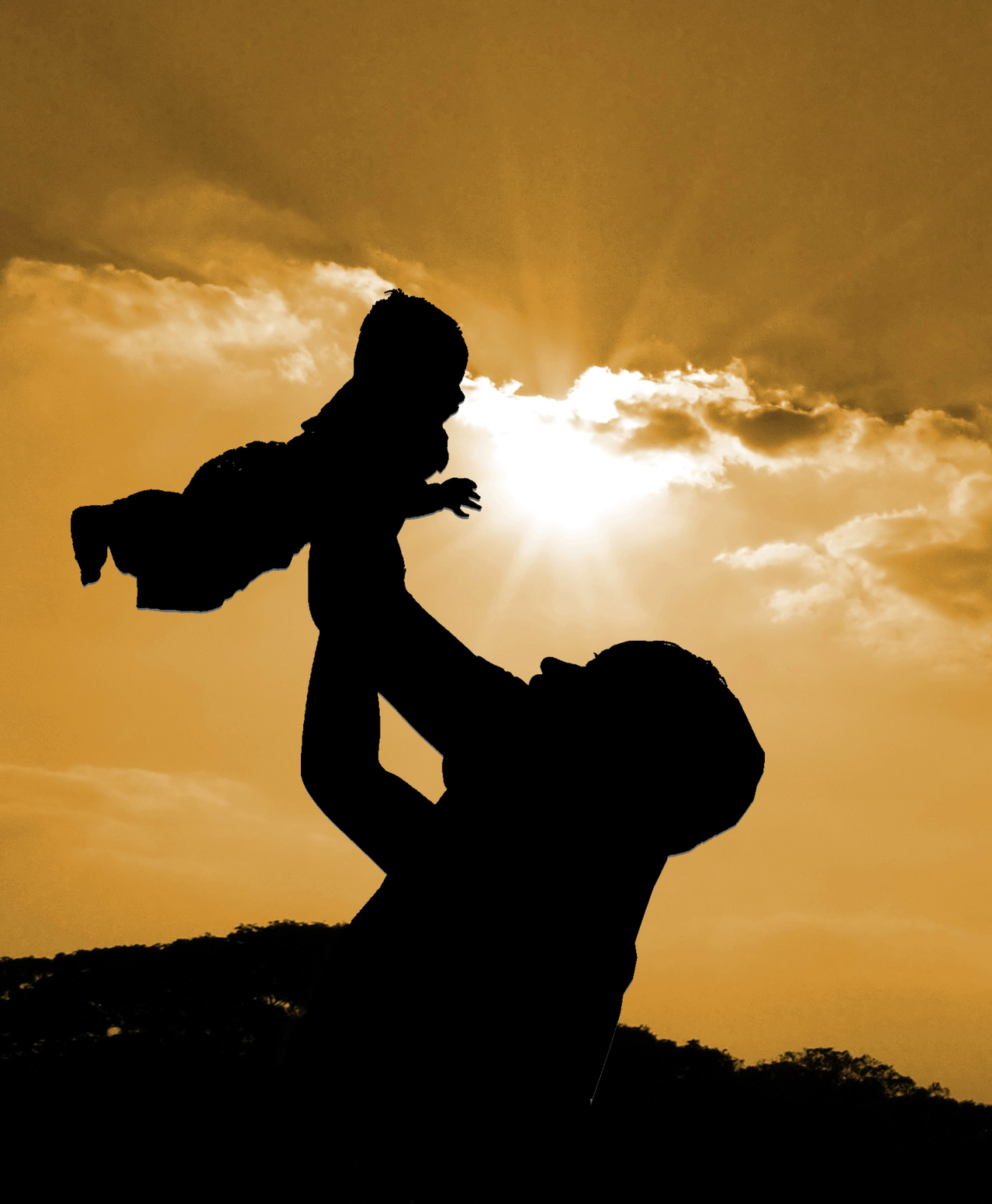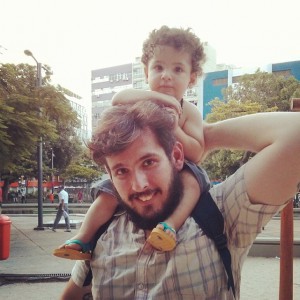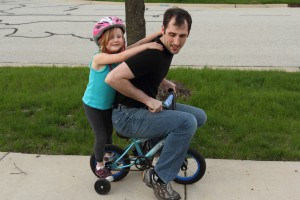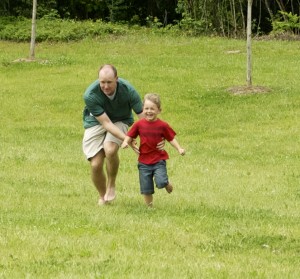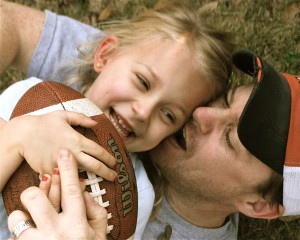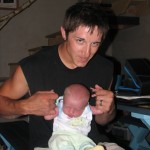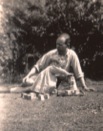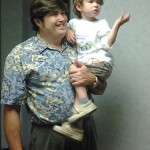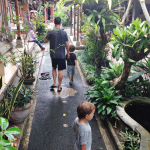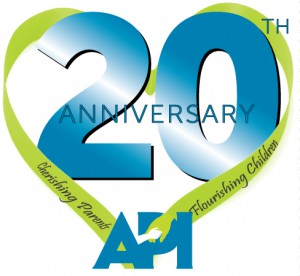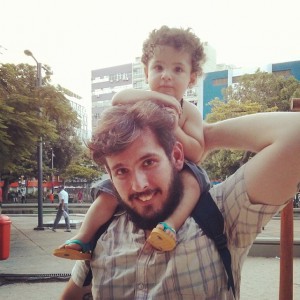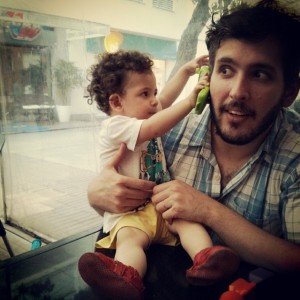A secure mother-infant bond is fundamental to a child’s well-being. Discoveries in the field of neurobiology confirm that a secure mother-infant bond depends on many factors:
- A natural birth
- Breastfeeding
- Near-constant physical contact through carrying infants in-arms or in slings
- Cosleeping
- The recognition that babies are social beings who thrive on loving connections.
Of course this is what Jean Liedloff, author of The Continuum Concept, discovered and many indigenous cultures have always known.
Now, put this together with the fact that most everyone in the Western world born since the 1930s has been subjected to modern child-rearing practices that interfere with secure attachment:
- High-intervention birth
- Artificial baby food
- Pushed about in wheeled carriers rather than carried on the body in slings
- Left to “cry it out”
- Left to sleep alone.
Now, here is the piece of the puzzle that many people practicing — and advocating — Attachment Parenting are not aware of: These little boys grow up to be men looking for the mother they never connected with.
 Time comes they believe they have found her, marry her and everything’s looking fine…until baby comes along. Suddenly baby takes center stage, consuming enormous amounts of the mother’s time and energy. He finds his needs are now largely ignored.
Time comes they believe they have found her, marry her and everything’s looking fine…until baby comes along. Suddenly baby takes center stage, consuming enormous amounts of the mother’s time and energy. He finds his needs are now largely ignored.
Feeling rejected, he is likely to withdraw, get resentful, act out, or turn to substance or process addictions to cope with the pain. The primal fears of abandonment that are wired into his brain as a result of his own unmet infancy needs have been restimulated — big time!
Meanwhile his partner may be blossoming, her needs being met like never before through her physical and emotional connection with their baby. A man can never experience the intimacy born of carrying a baby in the womb or breastfeeding. And in the early months, it can be hard for him to accept the fact that baby is more interested in mom, than in him — no matter how hard he “tries.”
She has no idea what is going on with her man, and no time to tend to him — especially as he is “acting out” in whatever way he may be doing that. Ironically, the better the mother is able to nurture her child, the more likely he will re-experience his childhood wounding because he sees even more of what he didn’t get.
Neither partner has a clue what is going on.
It’s not too difficult to understand then, why a man will leave, disappear — either physically or emotionally.
Much of what is understood in Attachment Parenting circles with respect to “attachment” is the vital importance of infants and children for connection. What is generally not understood is — as John Bowlby, the father of Attachment Theory recognized — the equally primal need of adults for connection. Neurobiology confirms it feels literally devastating on a core level to have that connection threatened.
How Many Couples Experience This?
 Many people are surprised to learn that in the United States, an estimated 14% of men suffer postpartum depression. During the 3- to 6-month postpartum period, the rate increases to 26%. Factors researchers have identified as leading to male postpartum depression include dad feeling burdened at the prospect of caring for a child, burdened with the financial responsibility, and missing — or essentially feeling abandoned by — their wives.
Many people are surprised to learn that in the United States, an estimated 14% of men suffer postpartum depression. During the 3- to 6-month postpartum period, the rate increases to 26%. Factors researchers have identified as leading to male postpartum depression include dad feeling burdened at the prospect of caring for a child, burdened with the financial responsibility, and missing — or essentially feeling abandoned by — their wives.
It’s the latter point that is core. And there may be plenty for a new dad to feel rejected, abandoned or jealous about. On top of the attention and affection baby gets — that he formerly got — there’s the attention his partner is getting as the new mom, and the baby’s having near exclusive rights to his wife’s breasts.
At the same time they are feeling deprived of quality time — or any time — with their partner, most new dads at some time feel scared: frightened that they feel helpless, frustrated even angry when the baby won’t stop crying, frightened they’re going to repeat the mistakes made by their own father. Sleep deprived, they can’t think straight.
Of course, the new mother faces many of these issues, too, but men — especially at this time — are expected to “be strong.” On top of that, men are expected to know what to do.
None of this is to say it’s harder for dads than for moms, but that it’s hard for dads, too.
Depressed, men are likely to be irritable and aggressive. And when dads appear this way, most women will turn their focus even more toward their child. Many will be feeling they have “another baby” to take care of.
While some people argue male postpartum depression is due to the father’s feeling displaced — a “needy, greedy child” — what is not factored into the “needy, greedy” diagnosis is the attachment perspective that recognizes that our need for connection, as adults as well as children, is primal.
As a man feels himself to be not only incompetent and superfluous but also rejected and abandoned, he distances himself from home and family. It’s not that he doesn’t care, but the practicalities of “being there” are just too difficult. Many give up and leave — emotionally, if not physically.
What Can Expectant Couples Do?
There is so much we can do. It does not need to be said that being parents today is a hugely demanding endeavor that, more often than not, puts unanticipated stresses on a marriage. The more prepared a couple can be, the smoother and more joyful the transition can be:
- Being informed about the dynamic is in itself huge. Recognize that having a baby almost inevitably puts a couple’s relationship at risk. No one can assume, “It won’t happen to us.” I would surely have been guilty of believing that.
- Recognize that fathers, too, have very legitimate and distinct concerns and needs that need to be addressed at pregnancy, birth and postpartum.
- Recognize becoming a parent as an opportunity to heal the wounds of your own childhood. While this may be a lifelong journey, it begins with awareness and small steps. So ideally prior to conception, parents can reflect on their our own birth and childhood to identify unresolved issues that may be re-stimulated. While parents pore over books and DVDs, and attend parenting classes to learn how to care for their child, this crucial area is rarely addressed.
- Recognize the significance of Attachment Theory to adult love. Recognize that adults crave and thrive on connection just as infants and children do. Reframe dad’s selfishness or immature neediness as re-stimulated unmet childhood needs for connection. And don’t rely on each other exclusively to meet those needs.
- Prepare for the postpartum period prior to the birth of a baby. Organize support — physical and emotional. Don’t try to go it alone.
- Promote an awareness of the need for local community as well as social, economic and political policies and practices that support families — and dads. In Norway, promoting men’s early involvement with infants and children is seen as a potential tool for reducing domestic and other violence.
Researchers have identified depression as often being the result of a dad being disabled as an involved parent, with the most depressed dads having wives who are “over-involved” with their baby.
And while a growing number of men want to be more involved in caring for their children, mothers often unwittingly discourage their partner’s involvement. I found this fascinating, and I have seen it again and again, now that I am aware of it.
What Can Couples Do Once Baby Arrives?
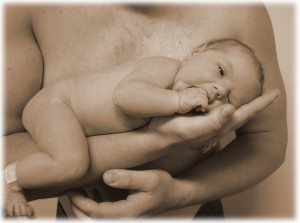 Men who feel supported by their wives in finding their own way of doing things are less prone to depression and develop a strong connection with their infants. We tend to overlook the fact that competency of fathering, as with mothering, is learned through the day-to-day, hands-on care of a child. This is perhaps truer today than every before, as so many of us have had very little to do with caring for the very young — unlike a generation or two ago. Yet, fathers typically spend almost no time alone with their babies — not because they don’t want to, but because it’s virtually impossible for a working dad, as most dads are.
Men who feel supported by their wives in finding their own way of doing things are less prone to depression and develop a strong connection with their infants. We tend to overlook the fact that competency of fathering, as with mothering, is learned through the day-to-day, hands-on care of a child. This is perhaps truer today than every before, as so many of us have had very little to do with caring for the very young — unlike a generation or two ago. Yet, fathers typically spend almost no time alone with their babies — not because they don’t want to, but because it’s virtually impossible for a working dad, as most dads are.
Dads need to be encouraged and supported in being key players in pregnancy and birth, and their different styles but equally significant roles as parents needs to be acknowledged — by their partners but also by society.
I strongly urge couples who find they are floundering to get support — sooner rather than later. Don’t try to do this alone. Seek the support of a wise and seasoned person, a counselor or therapist.
With a whole-hearted commitment to their partnership and family, to a strong focus on working as a team, and on appreciating and supporting each other in loving and learning, a tremendous amount of energy is generated that serves both the individuals, the marriage — and the children.
Attachment Parenting is Making a Difference
 I imagine that many of you begin Attachment Parenting like I did, so full of enthusiasm. And that’s wonderful. But this needs to be tempered with the realities that we are not continuum children. We do not live in a continuum culture. I see so many parents beating themselves up, because they feel they are not good enough moms or dads. I would like them not to be so hard on themselves. It’s not good for them, nor for their children. Self-acceptance and compassion for themselves in this time of huge transition is to the good of all — without exception.
I imagine that many of you begin Attachment Parenting like I did, so full of enthusiasm. And that’s wonderful. But this needs to be tempered with the realities that we are not continuum children. We do not live in a continuum culture. I see so many parents beating themselves up, because they feel they are not good enough moms or dads. I would like them not to be so hard on themselves. It’s not good for them, nor for their children. Self-acceptance and compassion for themselves in this time of huge transition is to the good of all — without exception.
I believe that everyone who is practicing Attachment Parenting to whatever degree they can, is making a difference. It’s a huge shift from the way past generations were raised — and we are really paving the way for our children, and the generations to come.
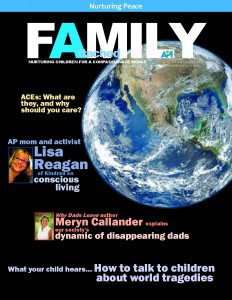 Read the full interview with this author on Attachment Parenting International‘s “Nurturing Peace” issue of The Attached Family.
Read the full interview with this author on Attachment Parenting International‘s “Nurturing Peace” issue of The Attached Family.
*Second photo source: Free Images.com/Mohamed Riffath
 I come from a story, as we all do. Some of it is real, some imagined or interpreted, and part of it remains a mystery as well. Never did I imagine in examining my own story that I would so deeply relish the experience of being a dad.
I come from a story, as we all do. Some of it is real, some imagined or interpreted, and part of it remains a mystery as well. Never did I imagine in examining my own story that I would so deeply relish the experience of being a dad. But this is a different kind of purpose, a through line of presence that flows through me having nothing to do with a goal, and simply wanting a wonderful future for my child, hoping his dreams come to fruition — whether or not mine ever do.
But this is a different kind of purpose, a through line of presence that flows through me having nothing to do with a goal, and simply wanting a wonderful future for my child, hoping his dreams come to fruition — whether or not mine ever do.
